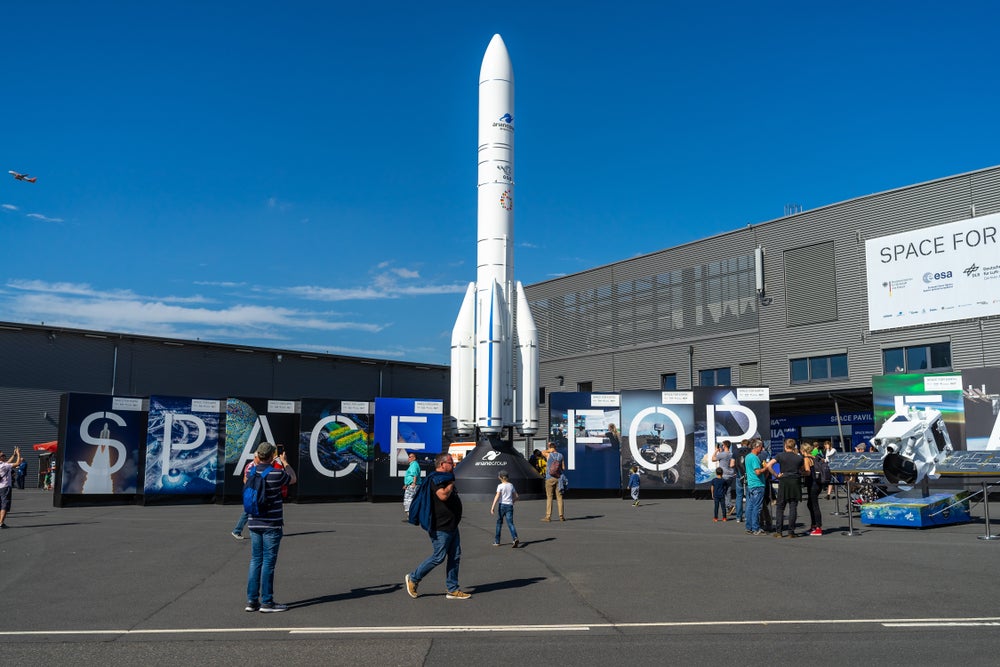
The delay of the Ariane 6 rocket means that Europe currently has no way to carry out its space missions independently, increasing its risk of falling behind the booming space economy in countries like the US, China and India.
Twenty-two country representatives of the European Space Agency (ESA) gathered at a two-day “space summit” in Spain starting today (6 Nov) to discuss finding funding for the delayed rocket, as well as Europe’s global competitiveness.
Europe has faced a lull in its space access following its Vega-C rocket having to be grounded and the Ariane 6 delay.
The Ariane 6 is due to take its first test launch in 2024, a whole four years behind its initial planned launch.
The ESA is also hoping to ease disagreements amongst leading space nations, as France, Germany and Italy have been left in a stand-off over the Ariane 6 rocket.
France, where ArianeGroup is located, has asked for more funding to help with the costs of delays to the launching of Ariane 6, according to industry sources.
How well do you really know your competitors?
Access the most comprehensive Company Profiles on the market, powered by GlobalData. Save hours of research. Gain competitive edge.

Thank you!
Your download email will arrive shortly
Not ready to buy yet? Download a free sample
We are confident about the unique quality of our Company Profiles. However, we want you to make the most beneficial decision for your business, so we offer a free sample that you can download by submitting the below form
By GlobalDataGermany has called for its own independent launch sector and Italy has called for focus on its own independent programs and protecting its Vega-C project.
The three-way standoff between the leading ESA nations has seen some progress but tough talks remain for ministers, sources revealed last week.
ESA director general Josef Aschbacher urged Europe not to repeat its mistakes in the technology sector, while declining to comment on financial talks.
Speaking to the AJPAE French media association, Aschbacher said: “Today, the biggest IT companies are not in Europe. Some are in the US, some of them in China. We have missed the train. Quantum technology is a similar example where we’re now trying to catch up.”
Last year, Francesca Gregory, analyst at GlobalData, said in a podcast that the company “expects a space infrastructure boom by 2030”.
Gregory said a combination of companies and countries will play a role in this sector.
She claimed that smaller firms had already entered the industry, vying for a “first mover advantage in their respective sectors.”







